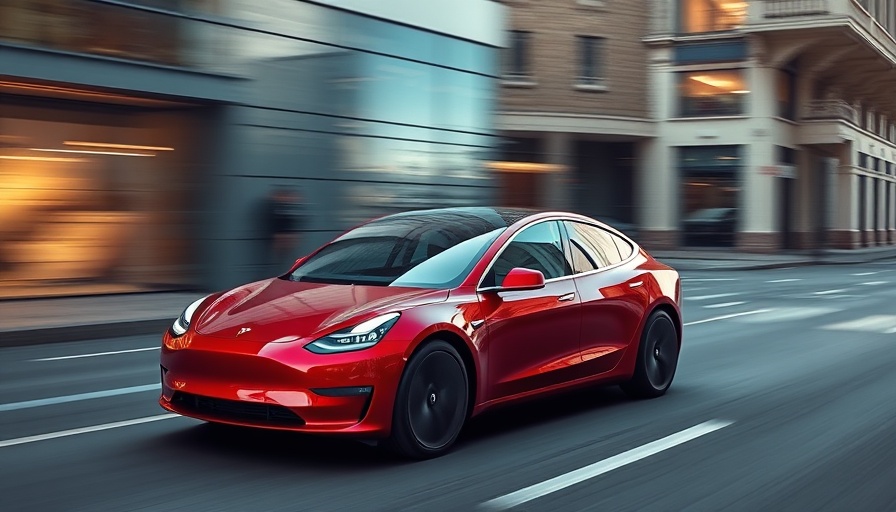
The Renewed Interest in Hydrogen Fuel
In recent months, the automotive industry has seen a resurgence of interest in hydrogen fuel cell technology, much to the surprise of many. This development comes as major auto manufacturers, notably BMW and Toyota, take renewed steps to pave the way for hydrogen-powered vehicles. While electric vehicles (EVs) have dominated headlines, hydrogen offers distinct advantages that may position it as a viable alternative in the ongoing quest for sustainable transportation.
BMW: A Calculated Risk in Hydrogen
BMW has made headlines with its ambitious plans centered around hydrogen fuel technology. The company's General Program Manager for Hydrogen Technology, Dr. Jürgen Guldner, confidently remarks that “the timing is right” for hydrogen, highlighting notable improvements in fueling infrastructure across key markets such as Europe, Japan, and South Korea. This is in addition to the introduction of the iX5 Hydrogen prototype that integrates a Toyota-sourced fuel cell system, indicating a strategic partnership between these automotive giants. With a launch of a production hydrogen SUV tentatively set for 2028, BMW appears committed to bringing this technology to consumers.
Why Hydrogen Works: Benefits Over BEVs
Hydrogen fuel cell vehicles (FCEVs) have distinct advantages over battery electric vehicles (BEVs). One of the primary benefits is the speed of refueling; filling a hydrogen tank takes only 3-5 minutes, akin to traditional gasoline vehicles, thus alleviating one of the main pain points faced by EVs related to charging times. Additionally, hydrogen propulsion offers the same instantaneous torque that electric vehicle enthusiasts appreciate, making the driving experience similarly exhilarating.
The Long Game: Toyota’s Commitment to Hydrogen
While BMW is stepping into the hydrogen arena, Toyota has championed this technology for nearly a decade. Following the launch of the Mirai in 2014, the company has continuously invested in a diverse hydrogen portfolio, including not only passenger vehicles but also commercial applications such as buses and heavy-duty trucks. Toyota’s vision of a ‘hydrogen society’ promotes fuel cells as a backbone for future energy needs, particularly in scenarios where battery technologies face limitations, such as long-distance travel and heavy loads.
Hydrogen's Role in the Evolving Auto Market
As the global automotive market continues to evolve, the interest in hydrogen underscores the industry's dynamism. While there is a prevailing narrative of slowing EV market growth, the truth is that this landscape is shifting. Globally, data from the International Energy Agency shows that demand for FCEVs could see a significant uptick if investments in hydrogen infrastructure keep pace. This includes enhancing consumer access to fueling stations and ensuring that hydrogen production methods become sustainable and cost-effective.
Addressing Challenges and Misconceptions
Despite its potential, hydrogen technology is not without its challenges. Misconceptions around safety and efficiency linger, which can deter investors and consumers alike. Hydrogen production requires significant energy, and current methods largely depend on fossil fuels. However, as renewable sources become a more viable means of energy production, this concern may ease, leading to a more sustainable future for hydrogen energy systems.
Looking Ahead: Future Predictions for Hydrogen's Market Share
What does the future look like for hydrogen fuel? Experts predict that as governments and industries push towards ambitious carbon neutrality goals, a comprehensive shift toward alternative fuels is inevitable. According to the latest findings from various automotive and environmental groups, hydrogen has the potential to complement electric vehicles and may play a critical role in achieving transportation sector decarbonization by the late 2030s.
Conclusion: Is Hydrogen Ready for a Comeback?
The investment from influential automotive brands like BMW and Toyota signifies that hydrogen fuel is not merely a fleeting trend; it’s a serious contender in the race for clean mobility solutions. By understanding the distinct advantages and addressing the challenges associated with hydrogen, consumers and industry stakeholders alike can make informed decisions to embrace this technology's potential. For those interested in following these developments more closely, keeping an eye on automotive industry newsletters can provide insightful updates and analyses moving forward.
 Add Row
Add Row  Add
Add 




Write A Comment